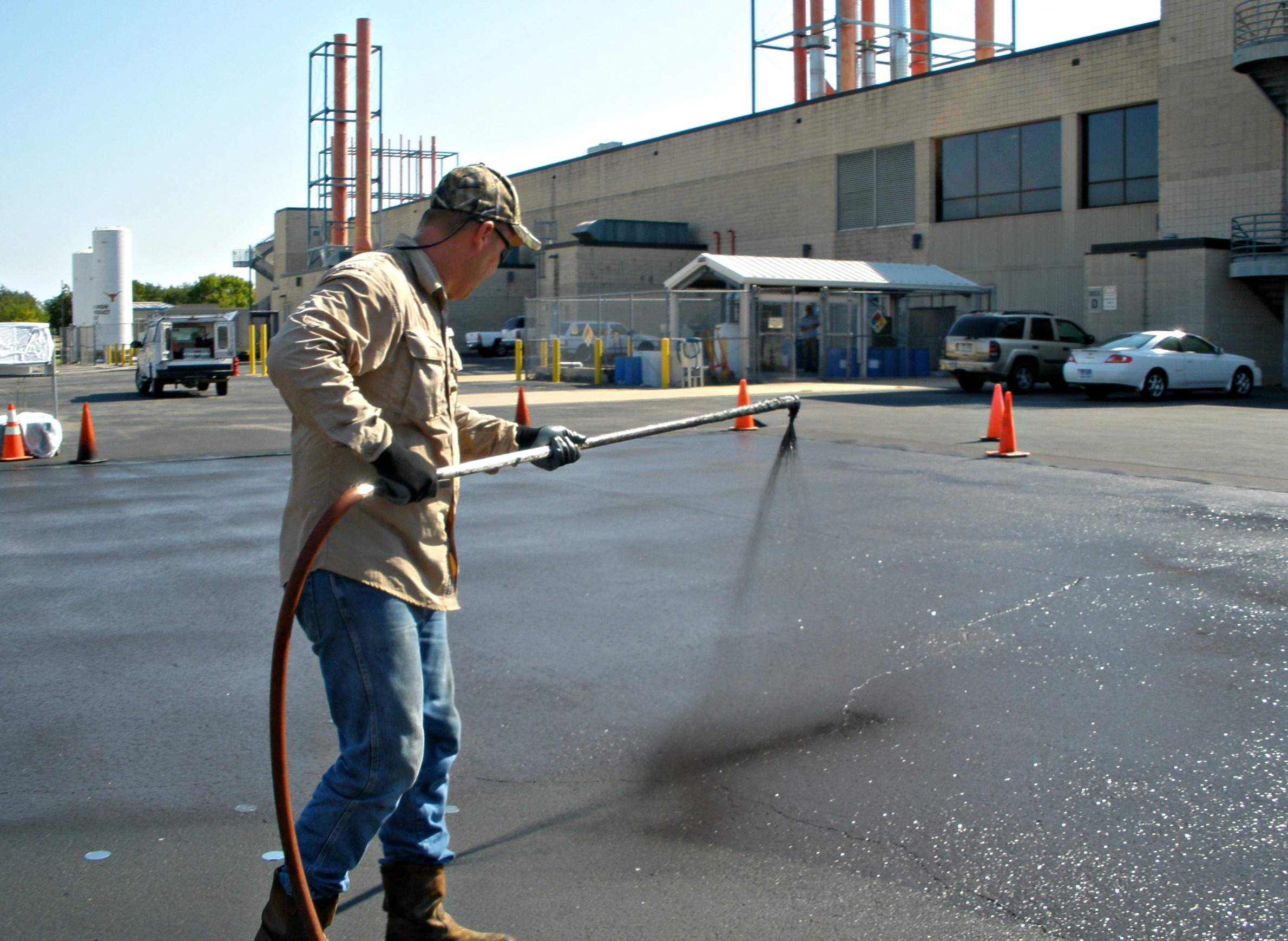
Sealcoats deteriorate into fine particles, which then wash into storm drains.

Sealcoats deteriorate into fine particles, which then wash into storm drains.
Spring is in the air, and with it the sharp odor of freshly sealed asphalt driveways and parking lots.
Used to improve the appearance and prolong the life of asphalt pavement, some sealcoats can be as toxic as they smell: Asphalt sealcoats containing coal tar, a byproduct of steel production, are a known health and environmental hazard. Eliminating the use of coal tar-based asphalt sealcoats can reduce the health and environmental risks these products pose, leading communities around the country to ban their use.
The health risk from the cancer-causing chemicals found in coal tar sealcoats depends on human exposure, which can occur in several ways. Workers applying sealcoats as a regular part of their jobs can suffer from prolonged exposure when handling or applying coal-tar-based products. The National Institute for Occupational Safety and Health and the U.S. Occupational Safety and Health Administration provide information on exposure to coal tar.
The general public can be exposed to coal tar-containing sealcoat dust and vapor. Research by the U.S. Geological Survey and others shows that coal tar-based asphalt sealants applied to driveways, parking lots or playgrounds can find its way inside schools and homes, potentially exposing children and adults to toxic carcinogens via skin contact, inhalation or ingestion.
Coal tar-based asphalt sealants also affect the environment, as they get swept into stormwater runoff from parking lots and driveways. Sealcoats deteriorate into fine particles, which then wash into storm drains. The contaminated runoff flowing into lakes and streams can be toxic to aquatic life and enter the food chain. Austin, Texas, banned coal tar sealcoats in 2005 to protect its lakes, streams and residents.
When coal tar sealcoat particles collect in stormwater detention ponds, the contaminants can reach levels that require accumulated sediment to be disposed of in a licensed landfill, at a higher cost. One Minnesota community's experience with coal tar contaminated sediment disposal led to a 2014 statewide ban on coal tar sealcoats.
In Wisconsin, Dane County prohibited the sale or application of coal tar-based asphalt sealants in 2007. Since then, asphalt sealcoat applicators have used alternative products that provide similar performance and cost, without the harmful effects of coal tar.
When hiring a company to seal a driveway or parking lot, consumers (homeowners, businesses, schools, churches and municipalities) can insist that only non-coal tar-based sealants be used. While most home improvement stores now offer coal tar-free asphalt sealants, many commercial sealcoat applicators prefer coal tar sealcoats because of lower costs.
Before selecting an asphalt sealcoat or contracting with a sealcoat applicator, the consumer should be sure the sealcoat is free of coal tar compounds. The University of Wisconsin-Extension offers a guide on selecting sealcoats, as well as additional information on the toxicity, health and environmental hazards of coal tar sealants.
Being aware of the differences among asphalt sealcoats can help make a smelly summer chore healthier.
David S. Liebl is a University of Wisconsin-Extension statewide specialist on stormwater management.